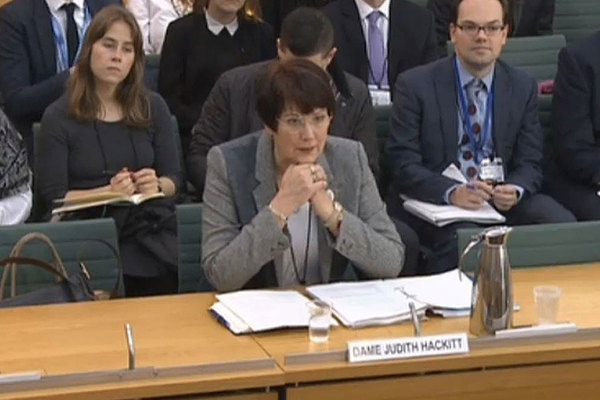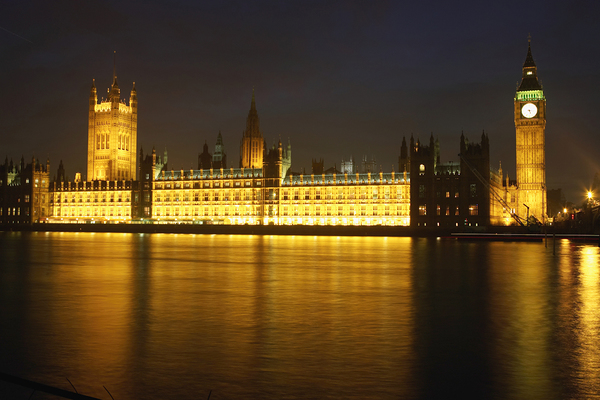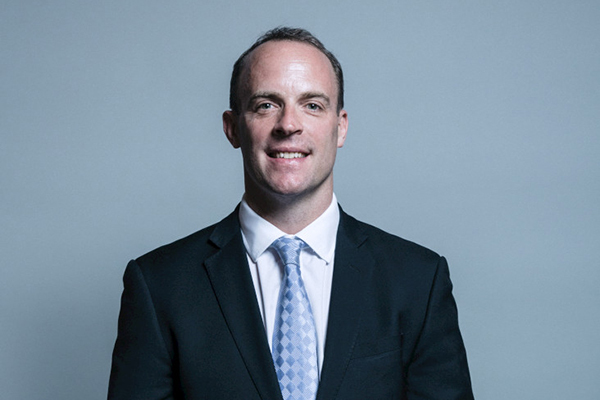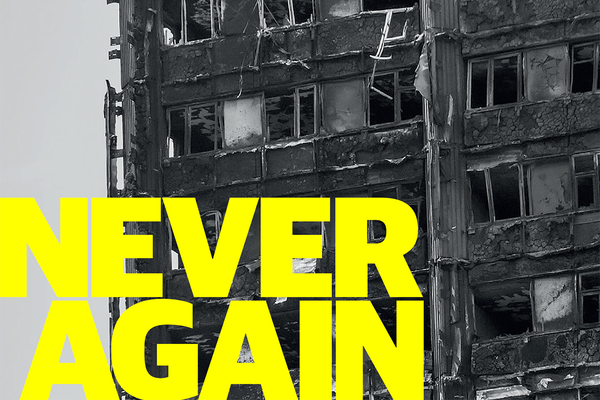Final Hackitt report calls for new regulatory body but does not ban combustibles
Dame Judith Hackitt has called for a regulatory body to be set up to oversee the safety of buildings, but has stopped short of a prescriptive approach or the banning of dangerous cladding.
In the final report from Dame Judith’s review into building regulations and fire safety, set up to review regulations after the Grenfell Tower fire, she slammed the construction industry for engaging in a “race to the bottom”.
However, she stopped short of banning combustible cladding on buildings or the use of desktop studies to sign off on cladding, as reported by Inside Housing on Friday.
Dame Judith said the regulator will take action against those who fail to meet requirements and that government should set “clear outcome-based requirements” for building safety standards “which must be achieved”.
She said there should be “more rigourous” enforcement powers and “more serious penalties” for those who choose to “game the system”.
However, she stopped short of calling for a prescriptive system where certain materials are banned, despite experts calling for a complete ban on combustible materials on tower blocks.
In the report, she said: “A totally prescriptive system creates an over-reliance on the system by those working within it, discouraging ownership and accountability for decisions… The cumulative impact of the approved documents changes an outcome-based system of regulation to one that is often inferred by users to be prescriptive.
“The suite of guidance is very slow to adapt and update as new technologies and techniques become available in the sector. This create significant scope for gaming of the system in a variety of ways.”
A new dutyholder role will be introduced, as previously revealed by Inside Housing, who will be responsible for overseeing the management of buildings across their entire life cycle. It will be mandatory for this dutyholder to report building safety concerns.
She described the current system of guidance published alongside building regulations – the approved documents – as “ambiguous or inconsistent”.
The voices of residents “often go unheard, even when safety issues are identified”, Dame Judith said.
She confirmed Inside Housing’s previous reports that a new regulatory system would be introduced for blocks of 10 storeys or more in height.
She also called for a new joint competency authority comprising local authority building standards, fire and rescue authorities and the Health and Safety Executive (HSE) to oversee better management of safety risk in these buildings.
The Local Government Association (LGA), which represents councils, responded by calling the lack of a ban on combustible cladding or desktop studies “disappointing”.
It added: “The government should nevertheless act without delay to introduce a temporary ban on the use of combustible materials on complex and high-rise buildings and until we have a regulatory and testing system which is fit for the 21st century.
“As the use and misuse of desktop studies has been at the heart of the problem, the LGA also remains clear that the use of desktop studies that attempt to approve safety compliance must also be banned.”
Never Again campaign
In the days following the Grenfell Tower fire on 14 June 2017, Inside Housing launched the Never Again campaign to call for immediate action to implement the learning from the Lakanal House fire, and a commitment to act – without delay – on learning from the Grenfell Tower tragedy as it becomes available.
One year on, we have extended the campaign asks in the light of information that has emerged since.
Here are our updated asks:
GOVERNMENT
- Act on the recommendations from Dame Judith Hackitt’s review of building regulations to tower blocks of 18m and higher. Commit to producing a timetable for implementation by autumn 2018, setting out how recommendations that don’t require legislative change can be taken forward without delay
- Follow through on commitments to fully ban combustible materials on high-rise buildings
- Unequivocally ban desktop studies
- Review recommendations and advice given to ministers after the Lakanal House fire and implement necessary changes
- Publish details of all tower blocks with dangerous cladding, insulation and/or external panels and commit to a timeline for remedial works. Provide necessary guidance to landlords to ensure that removal work can begin on all affected private and social residential blocks by the end of 2018. Complete quarterly follow-up checks to ensure that remedial work is completed to the required standard. Checks should not cease until all work is completed.
- Stand by the prime minister’s commitment to fully fund the removal of dangerous cladding
- Fund the retrofitting of sprinkler systems in all tower blocks across the UK (except where there are specific structural reasons not to do so)
- Explore options for requiring remedial works on affected private sector residential tower blocks
LOCAL GOVERNMENT
- Take immediate action to identify privately owned residential tower blocks so that cladding and external panels can be checked
LANDLORDS
- Publish details of the combinations of insulations and cladding materials for all high rise blocks
- Commit to ensuring that removal work begins on all blocks with dangerous materials by the end of 2018 upon receipt of guidance from government
- Publish current fire risk assessments for all high rise blocks (the Information Commissioner has required councils to publish and recommended that housing associations should do the same). Work with peers to share learning from assessments and improve and clarify the risk assessment model.
- Commit to renewing assessments annually and after major repair or cladding work is carried out. Ensure assessments consider the external features of blocks. Always use an appropriate, qualified expert to conduct assessments.
- Review and update evacuation policies and ‘stay put’ advice in the light of risk assessments, and communicate clearly to residents
- Adopt Dame Judith Hackitt’s recommended approach for listening to and addressing tenants’ concerns, with immediate effect
CURRENT SIGNATORIES:
- Chartered Institute of Housing
- G15
- National Federation of ALMOs
- National Housing Federation
- Placeshapers














